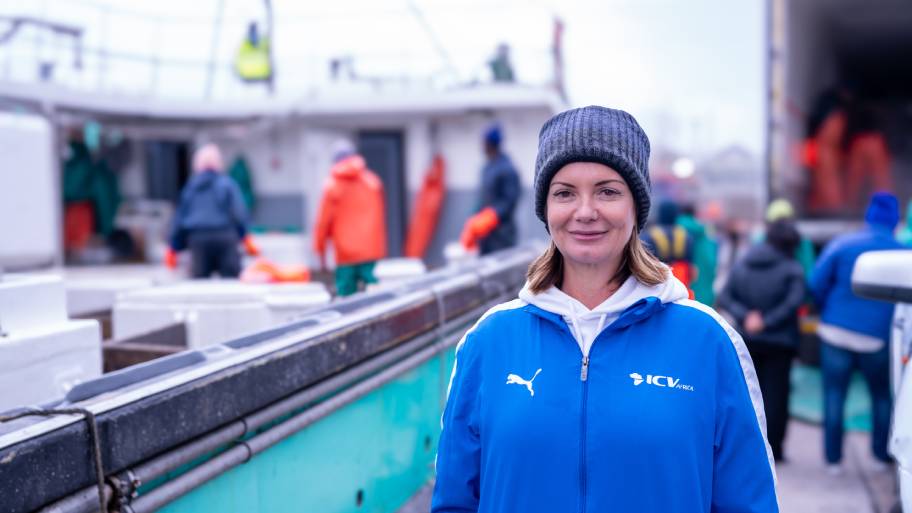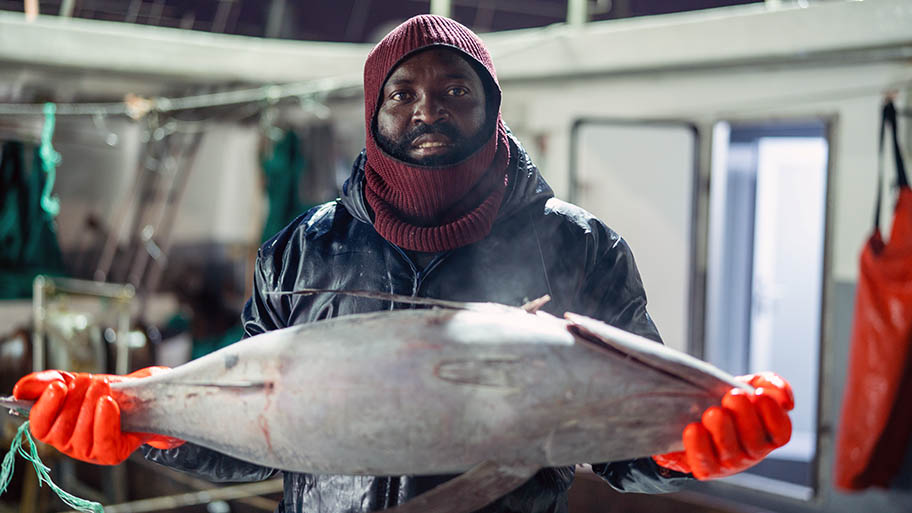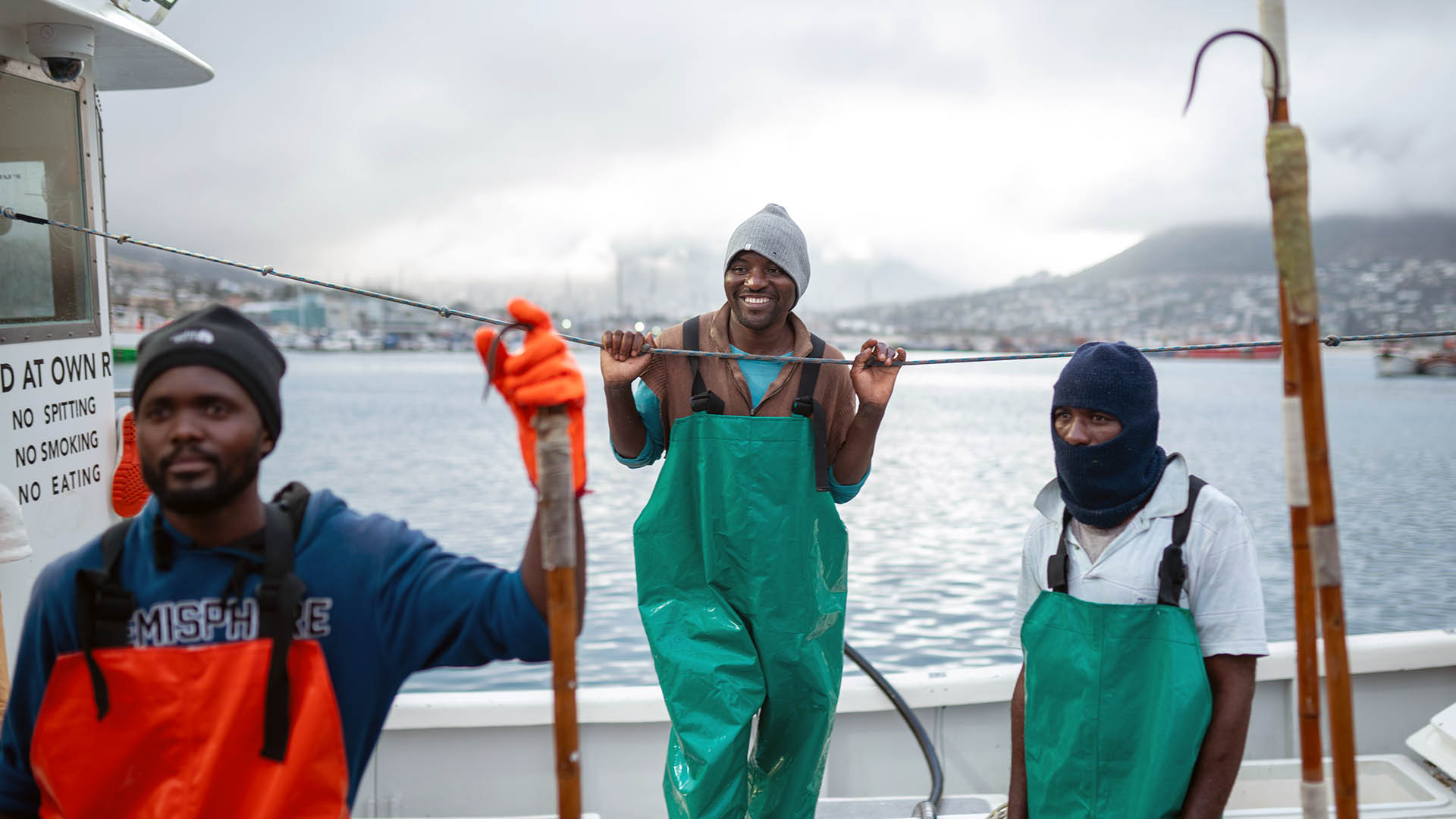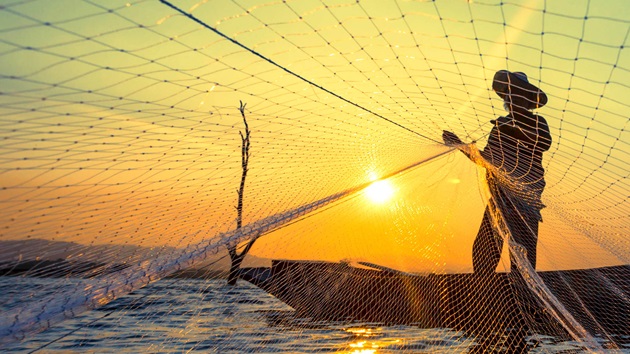A component of the South African albacore tuna fishery, represented by ICV Africa, has achieved MSC certification, becoming the first fishery to do so following participation in the In-Transition to MSC program.
The fishery joined the In-Transition to MSC program (which supports fisheries working towards MSC certification) in 2020. Since then, it has worked hard to make the improvements needed to meet the MSC Fisheries Standard.
Certification means the fishery now supplies the market with 2,500 tonnes of MSC certified, sustainably caught tuna. Most of this will be sold canned to consumers in North America and Europe.
Securing a sustainable future
Hand-held pole and line gear is used to catch the albacore tuna - known in South Africa as “longfin” - which has supported the local community for over half a century. Pole and line fishing is highly selective and is typically considered to have a low environmental impact. However, it’s not a guarantee of sustainability and improvements were needed to secure the fishery’s sustainable status and meet retailers’ requirements for certified products.
The drive to achieve MSC certification was led by Michelle Bellinger, Chief Executive Officer at tuna trading company ICV Africa. Michelle and her team work with 55 independent vessels operating out of Cape Town and nearby Hout Bay. They provide the links with international processors and the securing of premium prices for the albacore catch.
“Sustainability is integral to our business.” said Michelle, “Fishing sustainably is not only about ensuring that tuna stocks remain healthy; it is also about protecting the ocean ecosystem and the other species that our vessels interact with. Our clients, and increasingly the end consumers, expect it of us.”
 Michelle Bellinger
Michelle Bellinger
Working towards certification
To demonstrate the fishery’s commitment to achieving MSC certification, it joined the In-Transition to MSC program, a pilot project that supports fisheries to make measurable, independently verified progress towards certification.
“The [In-Transition to MSC] program provided us with a clear framework and tools, and the necessary scrutiny, to improve our practices to achieve the required level for MSC certification.” Michelle said.
To meet our Standard, the fishery first needed to gather independently verified data on its impacts on both the albacore stock and the wider ecosystem. To achieve this, the fishery collaborated with expert observer organisations to implement a bespoke on-board observer program. This enabled the collection of catch data, such as length and weight of albacore, and data on the use of bait. Data on bycatch are also gathered, including condition at capture and release.
Training was carried out to ensure fishing crew can safely handle and release any seabirds that come into contact with fishing gear, though such interactions are rare.
Going above and beyond
MSC certification does not mark the end of the albacore fishery’s sustainability journey. Over the next five years, further improvements will be made to ensure the fishery meets global best practice levels across all requirements of the MSC Fisheries Standard. This is a condition of MSC certification, as set by an independent assessor.
Developing a strategy to ensure fishing activities are not preventing the recovery of endangered species will be one area of work. The fishery will also work with the International Commission for the Conservation of Atlantic Tuna to develop harvest control rules that require catch to be reduced if the albacore population falls to a pre-determined level.
ICV Africa has further embarked on a series of initiatives to improve sustainability and traceability beyond the requirements of our Standard.
 Albacore fisher holding frozen tuna
Albacore fisher holding frozen tuna
A trial of an electronic monitoring system is underway, using on-board cameras with tamper-proof hardware to gather data on fishing activities. Crucially, this will allow small vessels - which often have limited capacity to carry on-board observers - to collect key data.
ICV Africa also worked with technology company Seafood Souq to develop and trial a digital logbook which enables fishers to record precise catch data at-sea. This includes tracking when and where albacore are caught and by which vessel, and recording interactions with other species. The app, which meets the Global Dialogue on Seafood Traceability standards, also allows landings to be verified and automates submission of government data. The use of the app could eventually allow brands to include a QR code on products so consumers can find out more about the origins of their fish.
“It doesn’t just give them [consumers] traceability of where the products came from but a story. ‘This is the vessel, this is who its owned by, this is the fishery’” explained Michelle. “So there’s pride for them [the fishers] that this fish is being linked to them. They have so much more pride in what they are doing and how they handle their fish”


